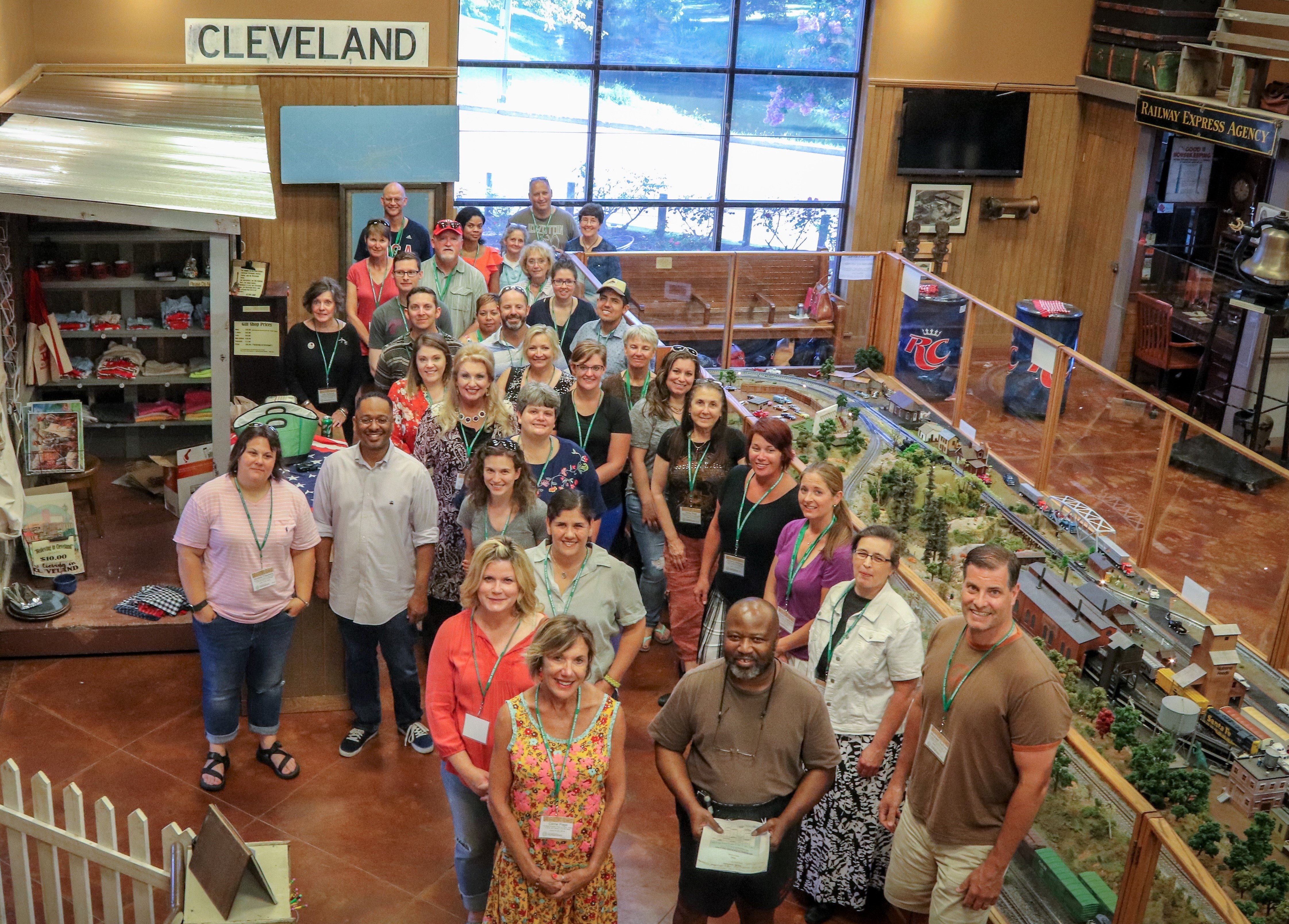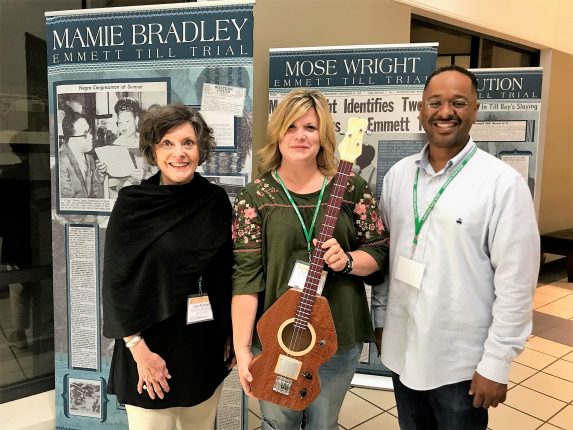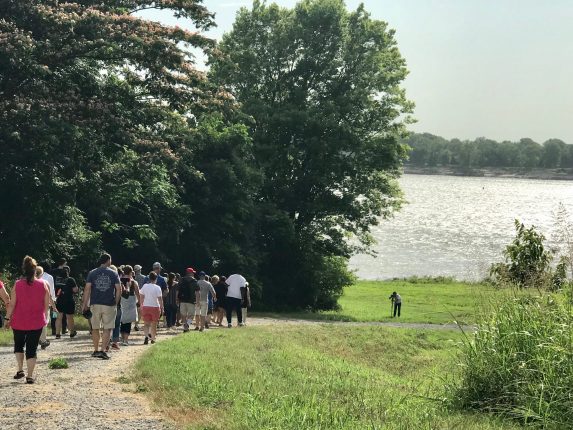 June 2018 NEH Most Southern Institute participants gather with Delta Center staff members Dr. Rolando Herts and Lee Aylward at the Martin and Sue King Railroad Museum, Cleveland, Mississippi (Photo credit: Mike Fagans/Lawton Ives/Jake Sheridan)
June 2018 NEH Most Southern Institute participants gather with Delta Center staff members Dr. Rolando Herts and Lee Aylward at the Martin and Sue King Railroad Museum, Cleveland, Mississippi (Photo credit: Mike Fagans/Lawton Ives/Jake Sheridan)June 2018 NEH Most Southern Institute participants gather with Delta Center staff members Dr. Rolando Herts and Lee Aylward at the Martin and Sue King Railroad Museum, Cleveland, Mississippi (Photo credit: Mike Fagans/Lawton Ives/Jake Sheridan)
The Delta Center’s Most Southern Place on Earth Institute began its ninth year this week with an opening reception at the Martin and Sue King Railroad Museum in downtown Cleveland on Sunday evening.
The Most Southern Institute attracts 36 K-12 educators from across the United States. Participants will spend a week in the Delta immersed in the music, history, and culture of the region, interacting directly with Delta people and places. The institute is funded by the National Endowment for the Humanities.
Toni Dringman, a high school American history teacher from the Kansas City metro area, was so excited to be participating that she donated a guitar to The Delta Center made by her husband.

NEH Most Southern Institute participant Toni Dringman (center) from Kansas donating a guitar made by her husband to The Delta Center.
“To be here in the Mississippi Delta is phenomenal,” said Dringman. “As a college student at University of Missouri – Kansas City, I took several African American studies courses. My students don’t know as much as they should about African American history. The opportunity to be here in the Delta meeting people who lived that history and being in the places where major events happened means the world to me. My husband and I are both music fans, so the guitar is a way for us to thank The Delta Center for offering this educational program.”
During this week, participants will travel around the Delta experiencing historically and culturally significant people and places in the region. Landmarks they will visit include the Chinese Cemetery in Greenville, Dockery Farms in Sunflower County, the B.B. King Museum and Delta Interpretive Center in Indianola, and the Emmett Till INTREPID Center in Glendora.
Participants also will have unique opportunities to experience historic cultural events happening in the Mississippi Delta this week.
On Wednesday, they will attend a reading of the civil rights play “Beautiful Agitators” at GRAMMY Museum® Mississippi. Written and performed by Mississippi Delta residents, the play explores the civil rights activism of Vera Mae Pigee, a Clarksdale-based beauty shop owner who worked with youth to register thousands of African Americans to vote. The event is free and open to the public through support from Mississippi Humanities Council, Mississippi Today, The Delta Center, Mississippi Delta National Heritage Area, and Coahoma Collective.

NEH Most Southern Institute participants walk to the Mississippi River at the historic Flood of 1927 levee break site.
On Thursday, participants also will attend a special, one-time re-dedication ceremony for the Emmett Till river marker. The marker made national news last year when it was vandalized by bullets. Wheeler Parker, Emmett Till’s cousin, will give remarks along with Dr. Timla Washington of Congressman Bennie Thompson’s office. The event is co-sponsored by the Emmett Till Interpretive Center and The Delta Center.
The Most Southern Institute has created a national network of over 500 educational and cultural ambassadors for the Mississippi Delta National Heritage Area. Participants take what they have learned from the workshop back to their school communities, sharing stories and lessons from the Delta with students, colleagues, family and friends, both nationally and globally.
Learn more about the Delta Center’s Most Southern Institute at http://deltacenterdsu.com/mostsouthern.
The mission of The Delta Center for Culture and Learning is to promote greater understanding of Mississippi Delta culture and history and its significance to the world through education, partnerships and community engagement. The Delta Center serves as the management entity of the MDNHA and is the home of the International Delta Blues Project and the National Endowment for the Humanities “Most Southern Place on Earth” workshops.

